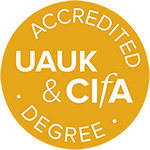Current filters applied:
- (-) Remove Mediterranean filter Mediterranean
- (-) Remove Palaeolithic/Mesolithic filter Palaeolithic/Mesolithic
Displaying 5 projects
Anthropogenic Wetlands and the Long Transition to Agriculture in the Levant (Anthropogenic Wetlands)
The project will develop an innovative new model to examine the pivotal role of anthropogenic wetlands in the long transition to agriculture in the Levant. Remarkably, while this transition has been explored in some detail, we still do not have a good grasp on the long-term developments and causes...
Archaeological data is often biased and incomplete. This is a well-known issue for most archaeologists. Although studies of specific sites and small regions can have this into account, the effect of this problem increases exponentially as archaeologists expand their chronological and geographic...
The aim of H-E Interactions is to investigate how increasingly anthropogenic wetland landscapes, and the reliable resources within those environments, influenced the evolution of plant-food production and the origins of agriculture through the Final Pleistocene and into the Early Holocene (ca. 23-8...
Changing Paleoenvironments and Hunter-Gatherer Strategies in the Northern Adriatic Basin.
Cambridge is home to world-leading researchers across archaeological science, technical art history and heritage science, based at Department of Archaeology, the Fitzwilliam Museum, and the Hamilton Kerr Institute, among others. There are multiple synergies across these institutions in terms of...


